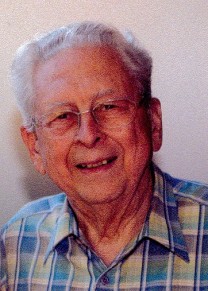Prof. Dr. em Jürgen Zwernemann was born in 1929 in Wilhelmshaven, where he spent his childhood years. Both of his parents were medical doctors. Zwernemann finished school in 1949.
Zwernemann initially planned to study medicine in Mainz. Due to regulations that privileged soldiers returning from World War II, he had to wait for another two semesters. Meanwhile he took courses in Theology and Hebrew Language. Furthermore, Zwernemann came into contact with African languages for which he developed a strong interest (e.g., Swahili). Therefore he took up his studies of Anthropology in 1950/51. English philology and geography were his minor subjects. At the Department of Ethnology and African Studies, Adolf Friedrich, Hermann Baumann and Erika Sulzmann were among his teachers.
After studying in Hamburg for a year in 1953, Zwernemann returned to Mainz and graduated in 1954. He immediately took up an assistant position at the Institute of Social and Cultural Anthropology in Hamburg and participated in a field research to western Africa. There he collected a wide range of linguistic data. Due to an illness, Zwernemann had to interrupt his research trip. He returned to Germany and eventually analyzed his research data as well as further ethnolinguistic material.
In 1958 Zwernemann moved to München and worked both at the state library and the university library. Furthermore, he began to write his habilitation thesis. In 1960 he became head chairman of the Department for Africa at the renowned Linden-Museum in Stuttgart. Throughout the following years Zwernemann not only organized various exhibitions but did further research trips to Africa. In 1966 he finished his habilitation thesis and began to give lectures, e.g., in Tübingen.
In 1971 Zwernemann became head chairman of the Ethnological Museum in Hamburg. During the next two decades he not only organized a large number of exhibitions but also was responsible for administrative tasks and for cataloguing the museums collections. He also established new approaches within the field of museum work, such as questions on educational matters and development politics.
Jürgen Zwernemann retired in 1992.
Short Portrait: Jürgen Zwernemann

Jürgen Zwernemann
 further information
further information
 Links
Links
- matrei.ruso.at
- matrei.ruso.at
- voelkerkundemuseum.com
- onlinelibrary.wiley.com
- matrei.ruso.at
- matrei.ruso.at
- matrei.ruso.at
- matrei.ruso.at
- kamerun.ch
- abendblatt.de
- abendblatt.de
- abendblatt.de
- abendblatt.de
- abendblatt.de
- abendblatt.de
- abendblatt.de
- abendblatt.de
- abendblatt.de
- abendblatt.de
- abendblatt.de
- abendblatt.de
- abendblatt.de
- abendblatt.de
- abendblatt.de

